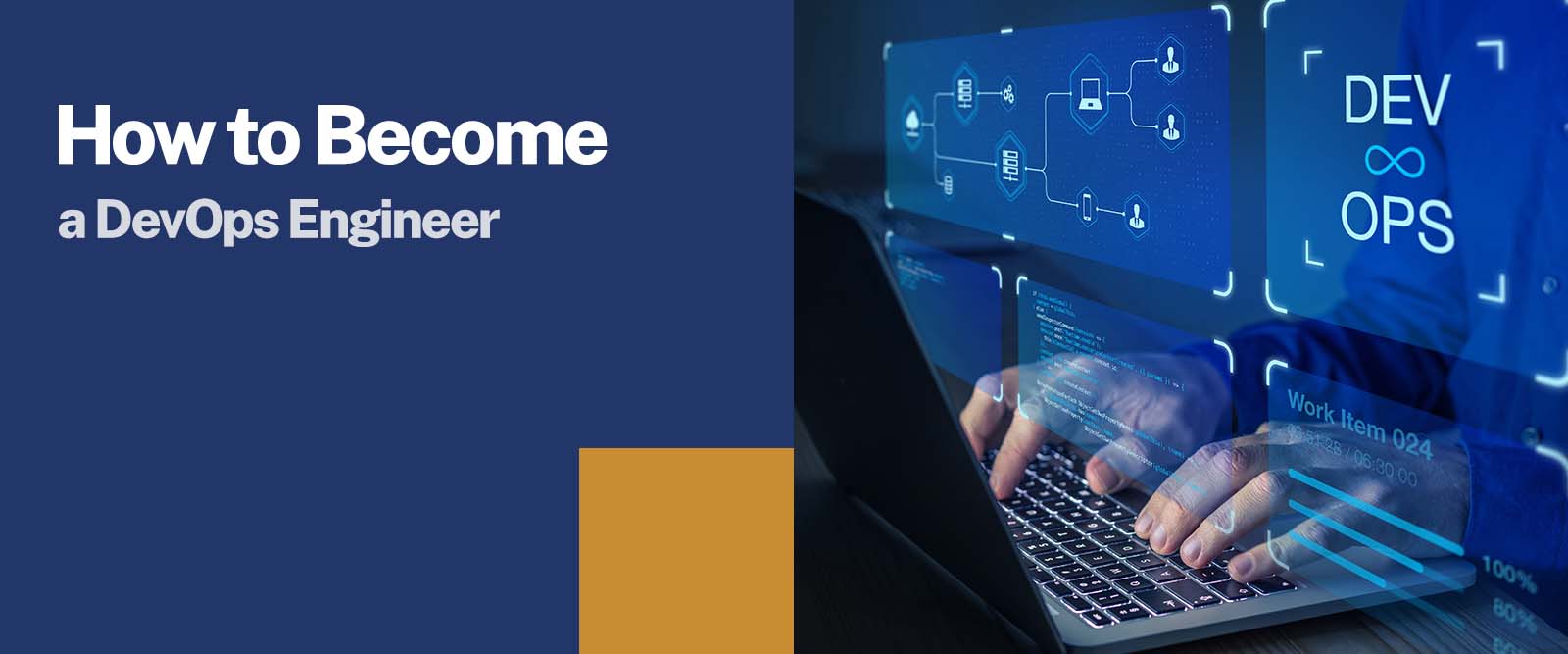5800 students unlocked their dream jobs with UG/PG programs in top colleges. Apply Now!
The term "DevOps" is a combination of "development" and "operations," signifying that the tasks and responsibilities of app development and IT operations teams are shared. DevOps is a practice that requires the adoption of new technology tools and management techniques. A DevOps engineer is a critical role in creating this adoption and must possess a broad range of skills.
This article provides all the necessary information for students interested in knowing how to become a DevOps engineer, whether through obtaining a B.Tech degree or other means. It includes a detailed description of the responsibilities of a DevOps engineer, the ideal skill set required for the role, and the various roles within a DevOps team.
[Also Read: Top Private Engineering Colleges]
What is a DevOps Engineer?
DevOps engineers are responsible for breaking down silos between different experts and toolchains to leverage the benefits of DevOps. A DevOps engineer is an IT professional who possesses extensive knowledge of both development and operations, encompassing coding, infrastructure management, and system administration.
The responsibilities of a DevOps engineer include the following:
- Comprehending customer requirements and project KPIs,
- Executing various development, testing, and automation tools,
- Managing stakeholders and external interfaces,
- Planning team structure, activities, and involvement in project management activities,
- Developing, testing, releasing, updating, and supporting processes for DevOps operations,
- Reviewing, verifying, and validating software code developed in the project,
- Fixing code bugs using troubleshooting techniques,
- Encouraging and developing automated processes where possible,
- Continuously performing vulnerability assessment and risk management to identify and deploy cybersecurity measures,
- Facilitating coordination and communication within the team and with customers,
- Selecting and implementing appropriate CI/CD tools, and
- Providing periodic reports on the progress to the management and the customer.
Who can Become a DevOps Engineer?
There is no specific roadmap to becoming a DevOps engineer, but students with the required skills and experience can pursue this career. Some companies may require professional qualifications, such as a B.Tech degree in computer science or relevant certifications, from DevOps candidates. Short-term certification courses are also available for those interested in pursuing a DevOps position.
Skills Required for a DevOps Engineer: How do I Become a DevOps Engineer?
To become a DevOps engineer, one needs to be aware of the top new technology trends related to the development cycle and operations skills for maintenance and support. Graduates with a B.Tech degree in Computer Science or Computer Technology may possess some of the technical skills necessary for the role. The necessary skills for a DevOps Engineer include
- Working experience with Linux-based infrastructure,
- Proficiency in programming languages like Ruby, Python, Perl, and Java,
- Managing databases such as MySQL and Mongo,
- Excellent troubleshooting abilities, familiarity with various tools, open-source technologies, and cloud services, and
- Understanding of critical concepts in DevOps and Agile principles.
How to Become a DevOps Engineer From Scratch: Detailed Guide
-
Gain B.Tech Admission for a Computer Science Degree
Securing B.Tech admission in computer science or a related field can provide the necessary knowledge and skills required for DevOps roles. When selecting a course of study, opt for a degree that specialises in software development. Additionally, post-graduate programs or certification courses can help improve skills and knowledge.
For instance, Sunstone offers Capstone projects every semester for students willing to gain a real-life skill set and enhance their employability. Students also benefit from 8+ months of internship opportunities and the availability of 5+ BTech specialisations to become domain experts. -
Acquire Programming Proficiency
Proficiency in programming languages and scripting is essential for the efficient execution of DevOps tasks. Courses or internships in modern programming languages such as Ruby, Perl, or Python can enhance one's DevOps skills. -
Learn About Linux and Other Operating Systems
Knowledge of operating systems, particularly Linux and Unix, is valuable for a DevOps engineer. Organisations typically use specific operating systems for their applications, and familiarity with them makes it easier to carry out the tasks associated with the role. -
Familiarise Yourself with Different DevOps Methodologies
Various DevOps methodologies belong to Agile software development that focuses on a holistic approach to software design and development. Agile software development involves several teams working together to achieve a common objective. Popular DevOps methodologies include Scrum, Kanban, Scaled Agile Framework, and Lean Development, among others. -
Understand Continuous Integration and Continuous Delivery Concepts
Continuous integration (CI) and continuous delivery (CD) are crucial processes in DevOps. DevOps engineers use tools like CircleCI, GitLab, and Jenkins for CI/CD. Familiarising yourself with these tools can help transition smoothly into a DevOps engineer role. -
Gain Knowledge in Networking and Security
Networking and security are essential aspects of a DevOps engineer's role. DevOps engineers work with servers to establish data connections and transfers, and they are responsible for ensuring the security of software at all stages, from design to deployment. A thorough understanding of networking concepts can significantly benefit DevOps engineers in their work. -
Learn About Automation, Cloud Computing, and other relevant tools.
In the DevOps process, automation plays a significant role. Whether you are managing source code or deploying software, you are likely to use different tools to automate these processes. There are various popular DevOps automation tools to consider, such as:- Continuous management: Ansible, Chef, and Puppet
- Continuous integration: Bamboo, Jenkins, and Travis CI
- Continuous testing: Docker, Test Complete, and Tricentis Tosca
- Continuous monitoring: Splunk, Sensu, and Nagios
-
Build Essential Soft Skills
Soft skills such as verbal and non-verbal communication, time management, leadership, teamwork and collaboration, accountability, and adaptability can improve your work performance. These skills can also increase your chances of securing advanced opportunities and bigger roles.
How to Become a DevOps Engineer with Sunstone?
As you already know, to become a DevOps engineer, you need to pursue an engineering degree. Sunstone brings you a host of institutes across India that are powered by Sunstone’s benefits. Many of these institutes of colleges offer engineering courses. But the main reason to choose any of these institutions is to leverage Susntone’s features like 100+ hours of skill development programs and industry-oriented training modules. These training programs help students prepare for the top jobs in the market.
FAQ - DevOps Engineer
How to become a DevOps Engineer without experience?
To pursue a career as a DevOps Engineer, a common requirement is a tertiary qualification in computer science or a related field, along with industry experience. One way to attain this qualification is by completing a BTech degree in Computer Science or a related discipline that emphasises software development.
How long does IT take to become a DevOps engineer?
In many cases, companies hiring for DevOps Engineer positions expect applicants to have at least a Bachelor's degree in Computer Science or a related field. Leading employers may prefer individuals with a Master's degree, additional certifications, or over five years of development work experience.
Is coding required for DevOps?
Proficiency in coding is crucial for anyone working in DevOps. These skills enable professionals to automate tasks and work with code repositories effectively. Without them, it may be challenging to succeed in this field.
HELP
Take the first step towards your dream job.
ABOUT THE AUTHOR

